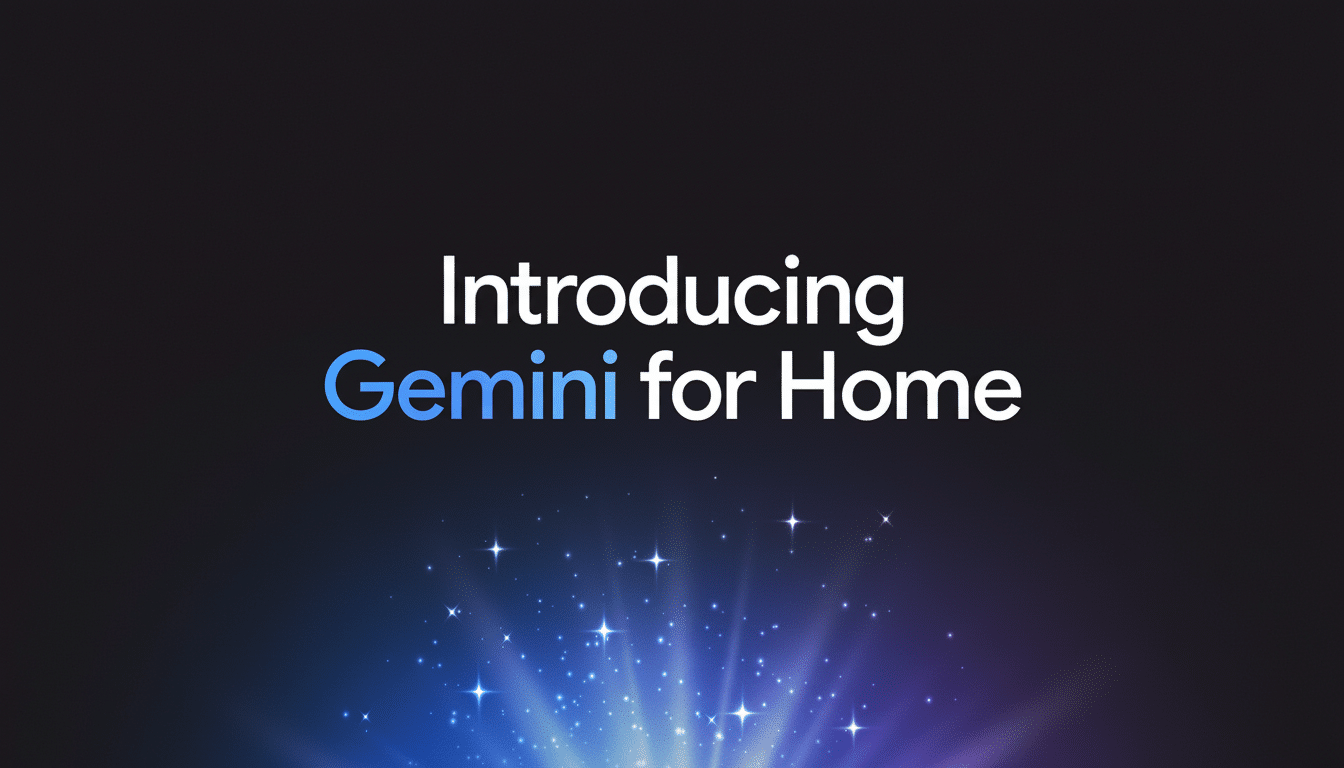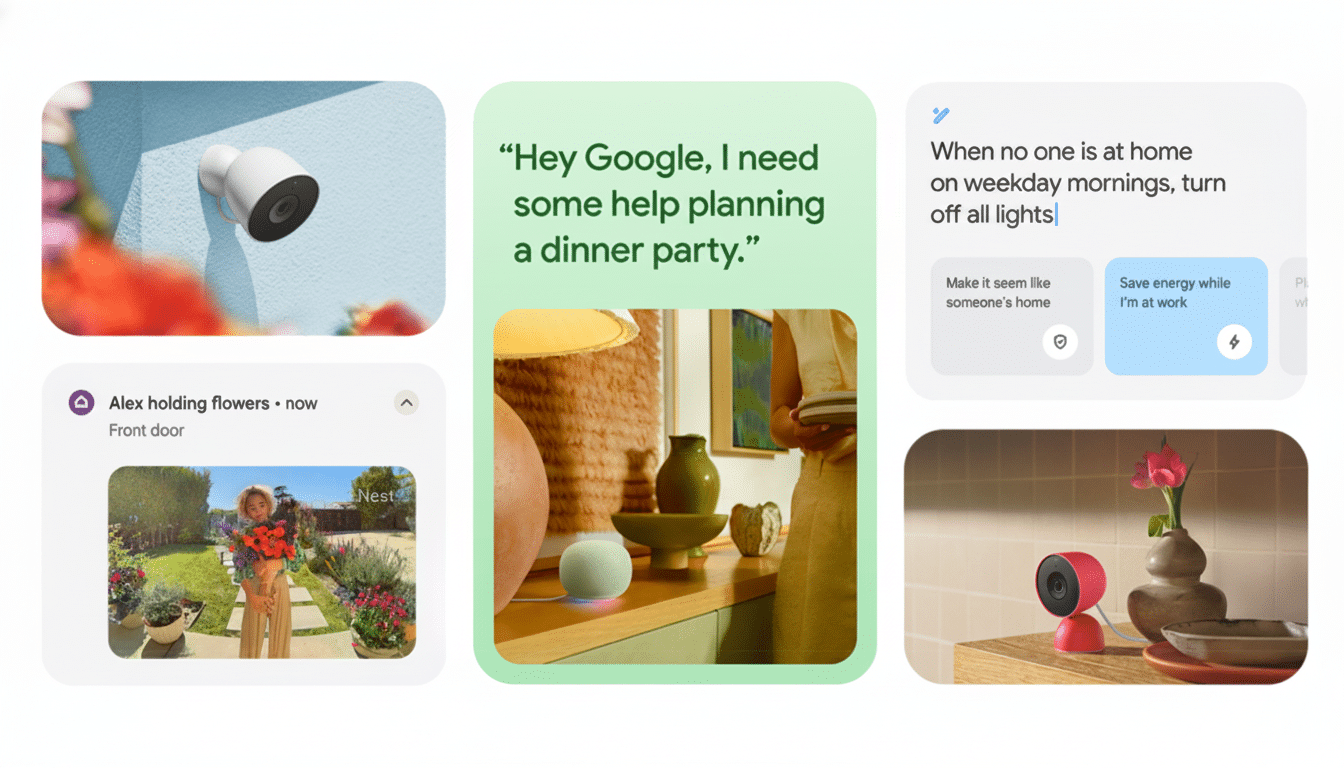Google is taking its most-powerful AI to the living room. The company also said Gemini for Home, a generative AI infrastructure update designed to replace Googles Assistant on Nest speakers and displays, is entering early access and will roll out more widely after early testing. The shift represents a redefinition of voice control into a conversational, context-aware system, rather than a stack of single-shot commands.
What Gemini for Home does differently
Demos at the Made by Google event showed Gemini for Home processing chained commands, conversational, back-and-forth dialogue, and contextual exceptions. Now, instead of working in strict syntax, users can say things like “dim the lights and set temperature to 72” or “turn off the lights everywhere but the bedroom,” and the system will understanding the intent in its interaction without requiring to manually set up scenes. Google keeps the familiar “Hey Google” wake phrase, but adds a new Gemini Live mode to keep your session open so you won’t have to use a the wake word each time you say something in a conversation.

Behind the scenes, Gemini offers better reasoning for home tasks. That includes better comprehension of device names, rooms and household routines, and the ability to string together steps that used to require separate commands or a custom routine. The company notes that existing Assistant features are preserved, but the experience has been fine-tuned to interpret language in the same order that it would happen in an intelligent home: natural language first and automation rules second.
Beyond switches: organization and help day-to-day
Google is also expanding the range of what a voice assistant can do in the home. In addition to lights, thermostats and locks, Gemini for Home can also assist in orchestrating a grocery run, recommending recipes for what’s in the pantry, troubleshooting smart devices and offering travel advice. In practice, that means asking “what can I do with chicken, spinach and pasta?” followed by “add everything I’m missing to my grocery list,” and “start a 10-minute timer while I boil water.”
This broader context suits the way consumers actually use assistants: Research firms like Parks Associates have found that more than half of U.S. broadband households have at least one smart home device, but many of these owners still use the assistants mostly for timers, music, and quick questions. By combining hands-free control with practical planning, Google is betting that it can turn occasional voice use into routine dependency.
Devices, regions, and the path from Assistant
Gemini for Home will come to current Nest devices, including the Nest Hub, Nest Hub Max, Nest Mini and Nest Audio, and other devices will pick up the platform as they ship. Early access will launch in some regions first before being rolled out in phases to more areas and languages. Google says that on these devices, Assistant branding will eventually be replaced with Gemini, but things like routines, Voice Match and device groups will still be available.
For smart home integration, Google remains committed to supporting Matter, Thread, and other standard protocols through the Google Home ecosystem. The Connectivity Standards Alliance has reported early mass production ramp-ups in Matter-certified products from lighting, climate and security categories that should help Gemini make sense of and manage multiple-brand homes with less frustration.

How rivals compare
The update amps up the competitiveness in the category. Siri and Apple’s HomeKit are still centered on pre-established automations and simple direct commands, with more evolved reasoning intelligence still to come. Amazon has also toyed with generative AI upgrades for Alexa, but Google’s system-wide shift—replacing Assistant wholesale on Nest products—suggests a quicker transition to conversational control.
From the stakes standpoint, they’re huge — IDC and others have long made clear voice’s status as a primary interface for the connected home, but user satisfaction has been lacking and that’s in large part because voice or misheard commands and clunky phrasing. If, in fact, Gemini provides significantly lower friction — learning tasks by example, chaining tasks without custom routines — it could reset the baseline expectation of what you should be able to ask a smart speaker out of the box.
Privacy, transparency, and performance
Deploying larger AI models at home raises important questions about data management and latency. Gemini, Google says incorporates its newest models for contextual comprehension though will not bypass account-level restrictions such as the Voice Match (the feature where Google’s voice model will recognize and respond to those registered to use it), device-specific settings, and options to review or remove voice recordings. Please check Google Account voice & audio activity settings to verify your preference, especially if multiple members of the house will be using Gemini Live for ongoing dialogues.
Performance will be another critical test. Real conversation only sounds smooth if answering is quick. Then trust that Google will mix on-device processing for wake-word and simple tasks with the cloud inferencing for tougher inquiries, a hybrid strategy aimed at keeping response times tight but allowing for richer reasoning.
What to watch next
Language coverage, developer integration and reliability with command-heavy commands are the three signposts to look for as early access broadens. More muscle in media, shopping and third-party services could make Gemini for Home something more than a device dashboard. If its real-world efficacy aligns with what the demos promised, the days of robotic, formulaic phrasing at home may finally give way to normal conversation — just the way most people want to talk to their tech.

